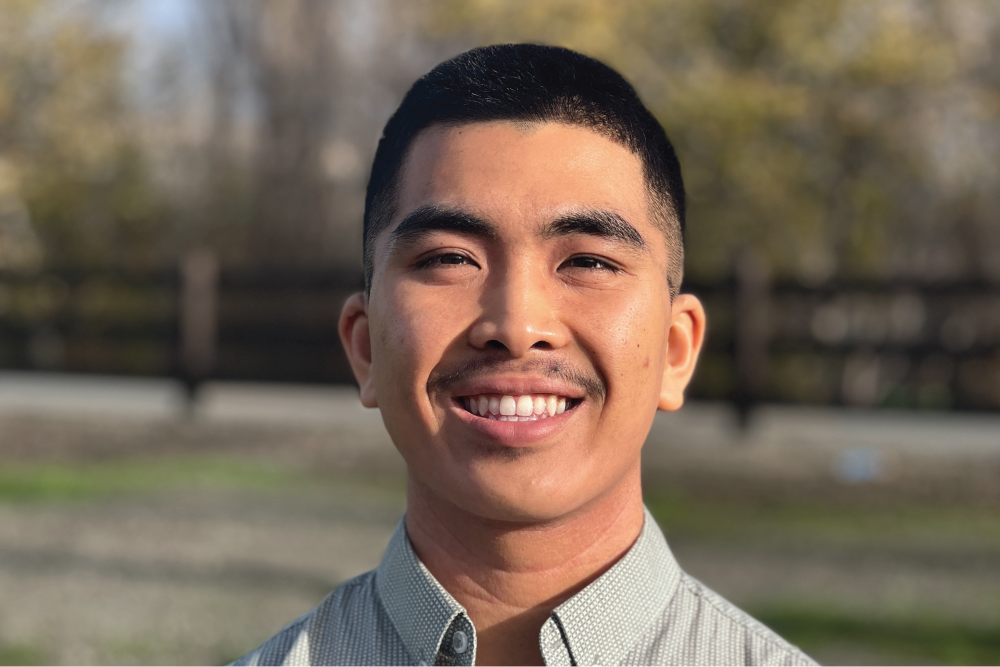Keenan Ky-An Do

Biography
Keenan is a current Master of Urban and Regional Planning student at UCLA and a Graduate Student Researcher with the Institute of Transportation Studies (ITS). His research focuses on the intersection of transportation and labor activism, as well as the urban political economy and governance.
Keenan is currently working on a study for ITS to identify the root causes of the operator shortage in public transit labor, and a master’s thesis documenting how the organizing efforts of transit workers have intersected with the activism of transit riders in pursuit of a more just transportation system.
Keenan is originally from the Bay Area and completed his B.S. in Civil Engineering from UC Irvine.
Project Overview
My thesis project documents how transit workers’ organizing efforts have intersected with transit riders’ activism in the pursuit of a more just transportation system. Through interviews and archival research, I’ll study the underpinnings of why and how transit worker unions do, or do not, support transit rider activist movements. Specifically, the project will document the reasons why various forms of worker-rider collaboration appeared in the Oakland East Bay Area (EBA) to oppose austerity budgets and neoliberal planning schemes between the 1990’s and today. It will also pay special attention to the lessons from worker-rider partnerships in Los Angeles and New York.
Why is this topic, specifically, important to you?
In the past few decades, an immense amount of activist energy and scholarship has been directed towards addressing deficiencies in public transit systems. Given the recent attention to the power of labor movements, I was curious how transit workers, whose sector has a storied history of activist public-sector unions, could potentially address transit riders’ needs as fellow community members.
On a more personal level, I have been fortunate to meet transit workers who are quite knowledgeable about the connection between the welfare of their passengers (providing exemplary service, ensuring that fares are low, and thinking about public safety holistically) and their own workplace satisfaction. In response, they promote fighting for a working-class harmony that demands more out of transit agencies in service of their constituencies. Hearing transit workers’ harrowing stories about working through the COVID-19 pandemic, often without adequate protection or compensation, made me realize that the welfare of transit workers and riders is interlinked. Further, there is a pressing need to address these shared concerns.
Who are the partners involved in this project (if any), and how will you be working with them?
This thesis project is one part analysis of how labor movements impact transit systems and one part social history of transit worker-rider activism. I plan to interview transit workers at both the union and rank-and-file level to better understand their perspectives on rider issues, and how their activism can be mutually supportive.
After publishing my thesis, I hope to share these oral histories (with permission) with local labor history libraries so that future activists can learn and be inspired by them! I also hope to use the knowledge I’ve gained to assist groups actively developing worker-rider solidarity, such as the groundbreaking People’s Transit Alliance in the East Bay Area.
How do you hope that this project will impact the field moving forward?
My goal is to provide fresh insight into the hotly debated question, “how can we achieve true transit justice?” by asking what transit labor unions could gain out of utilizing a “collective bargaining for the common good” organizing model. By understanding how transit workers and riders have (or have not) broken down divisions between their activism goals, my hope is to unlock new possibilities for a more humane workplace and a better transit system for all.
I also hope that by highlighting the individual stories of activism, I can add a more human element to the race, class, and gender-based oppressions that transit workers face in their workplace, and the impressive mass movements they have created to address these complex challenges. The importance of transportation to cities means that transit unions have, and can play a bigger, role in generating collaboration across social struggles.
Fellow at a Glance
FELLOWSHIP YEAR
ACADEMIC BACKGROUND
PROJECT TITLE
